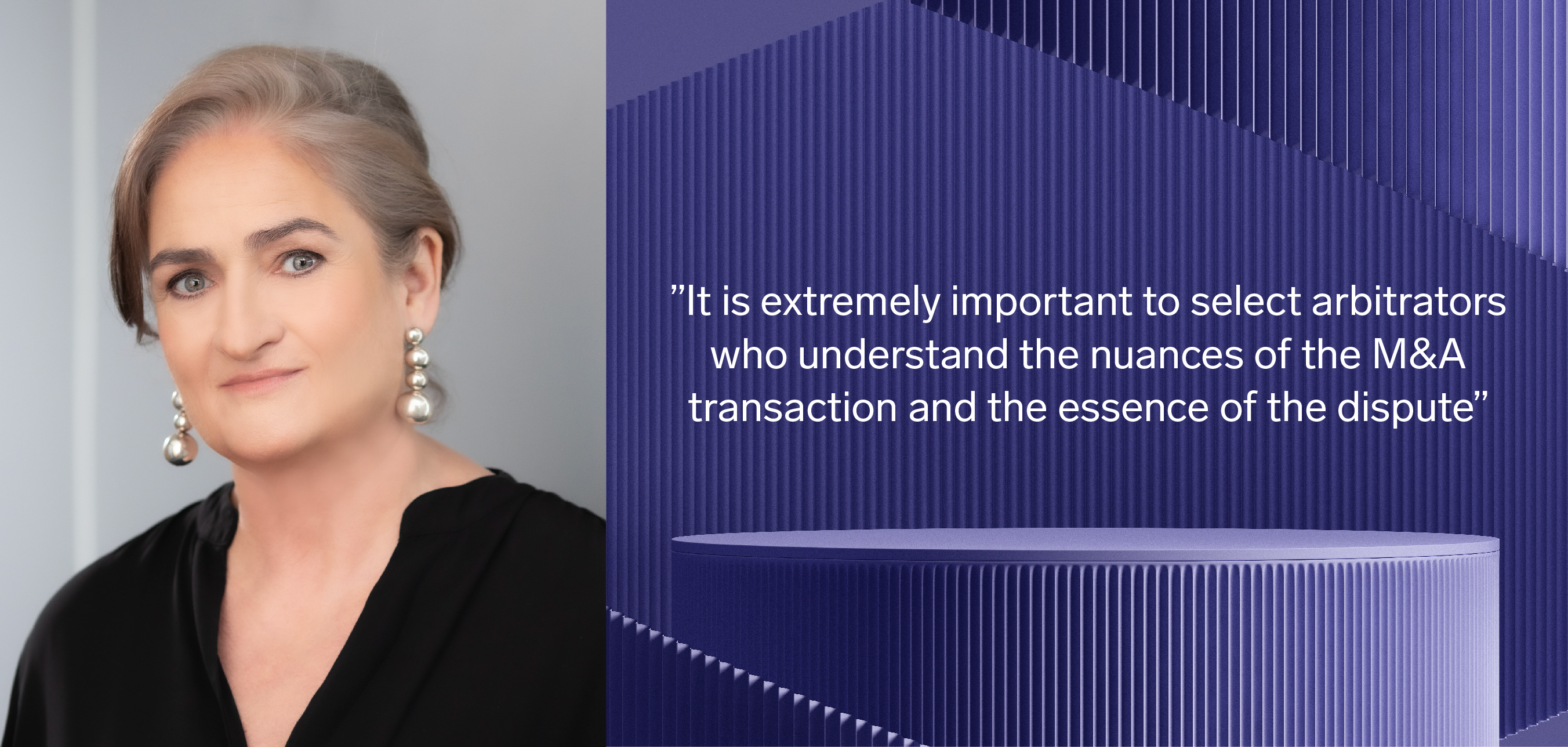SCC Spotlight Talk: Beata Gessel-Kalinowska Vel Kalisz
In this SCC Spotlight Talk, we meet with Beata Gessel-Kalinowska Vel Kalisz, the Founding and Senior Partner of GESSEL Attorneys at Law and a member of the SCC Arbitrators' Council. Also known as "the Vivienne Westwood" of international arbitration, Beata is a powerhouse with a strong focus on M&A disputes. Read on for her insights into this field of dispute resolution.
Published 2024-10-30

What are the typical kinds of “M&A” dispute in Poland?
M&A disputes often arise from complex, cross-border transactions and the Polish market is no different. Some of the issues that can arise range from alleged breaches of representations and warranties (i.e., the accuracy of information provided) and even alleged misrepresentation or fraud, to purchase price adjustments, earn-outs, and indemnification disputes.
Why is arbitration well-suited to resolve these disputes?
The generally known advantages of arbitration apply to M&A disputes, these include global enforceability as provided by the NY Convention or confidentiality, but most importantly the parties can appoint arbitrators - lawyers with the right corporate transactional expertise to decide their cases. M&A transactions are very specific. This is due to the complicated mechanisms of the transaction itself and the specific M&A/corporate finance terminology.
Because of all this complex transaction engineering, it is extremely important for the parties to the dispute to select arbitrators who understand the nuances of the M&A transaction and how it works, and who will be able to understand the essence of the dispute. Decisions on issues such as the valuation of the business for the purposes of damages or price adjustments depend heavily on the arbitrators' knowledge of corporate finance and the realities of running a business, which is important as there is a certain spectrum of discretion that lies with the arbitrators in assessing these issues.
Finally, time is money, and arbitration tends to be a faster and more efficient alternative to litigation simply because arbitrators have such underlying knowledge at the outset of the proceedings.
What are some of the issues an arbitrator may confront when deciding an M&A-dispute?
An arbitrator in an M&A dispute will often deal with lengthy and multifaceted transaction documents, conduct complex financial analyses including the comparison of conflicting expert reports, consider evidentiary questions in respect to the parties’ intent, and be required to navigate different applicable procedural and substantive laws.
Is there any advice you would give to transactional lawyers on what to consider when drafting their agreements and the dispute resolution clause?
Having also worked as a transactional lawyer, I know very well the mindset especially in the final push to get to an agreement. The parties often want to get on with popping the champagne bottle, but spending the little extra time can make an enormous difference down the line. I always advise transactional lawyer colleagues to clearly define any critical terms, time limits and obligations, to opt for institutional arbitration rules such as those of the SCC Arbitration Institute, and to copy and paste that arbitral institution’s model dispute resolution clauses from the website.